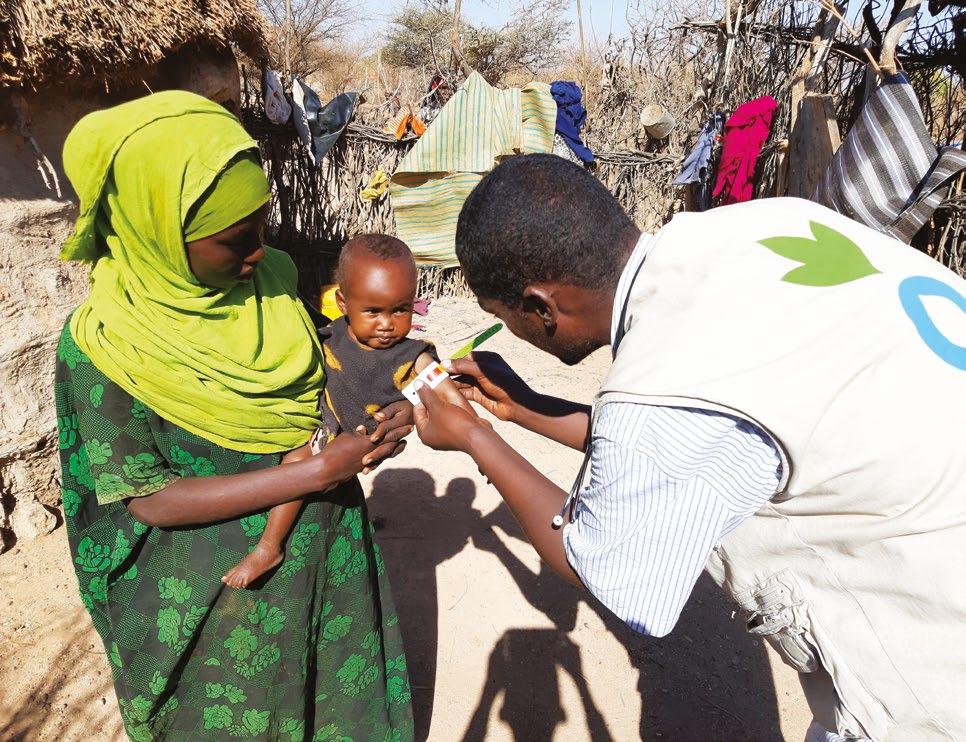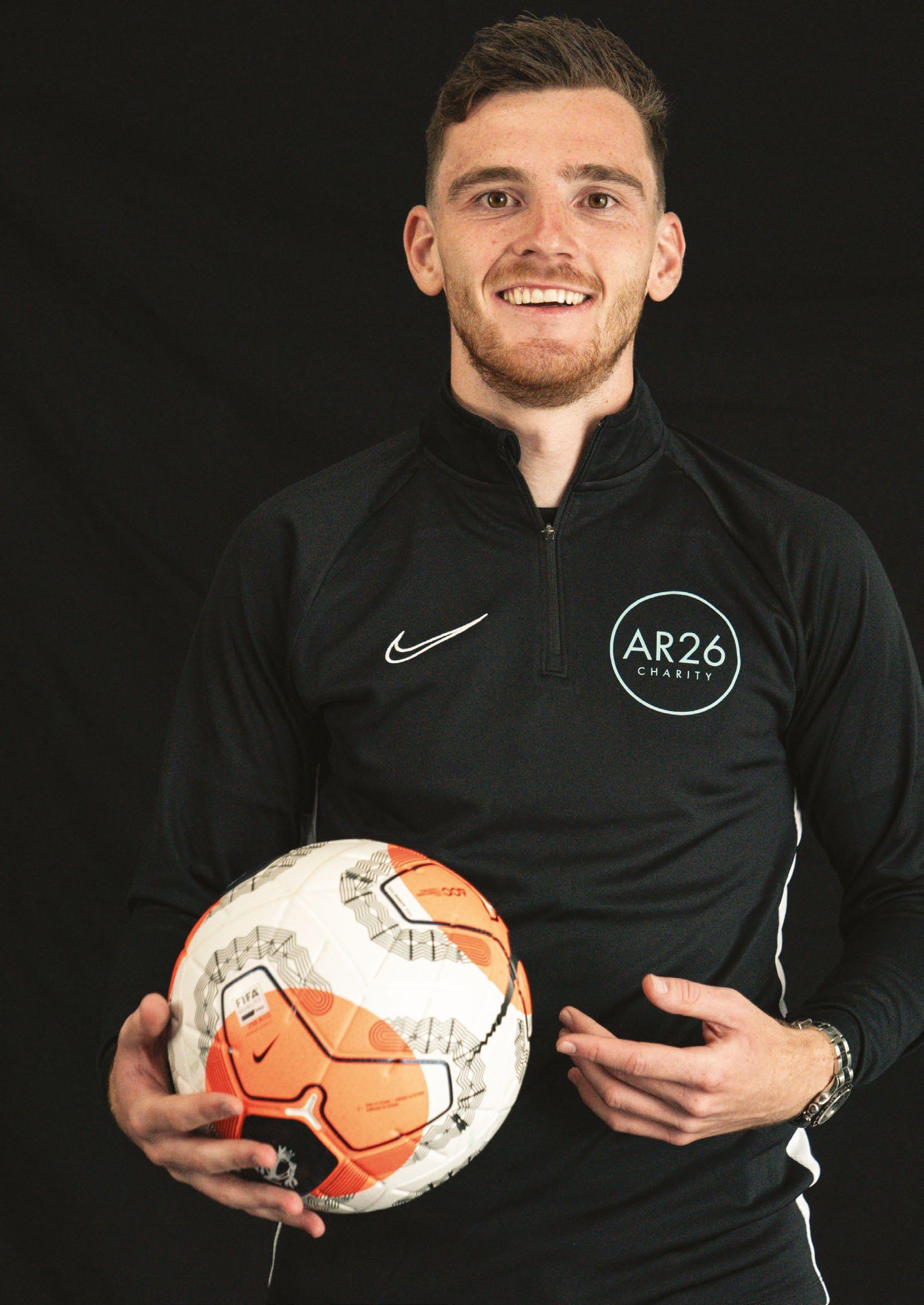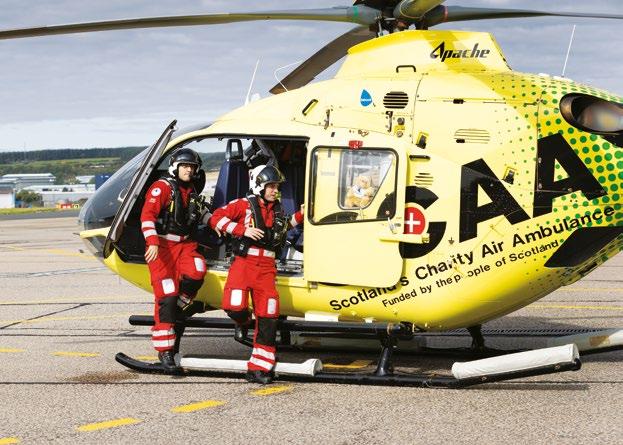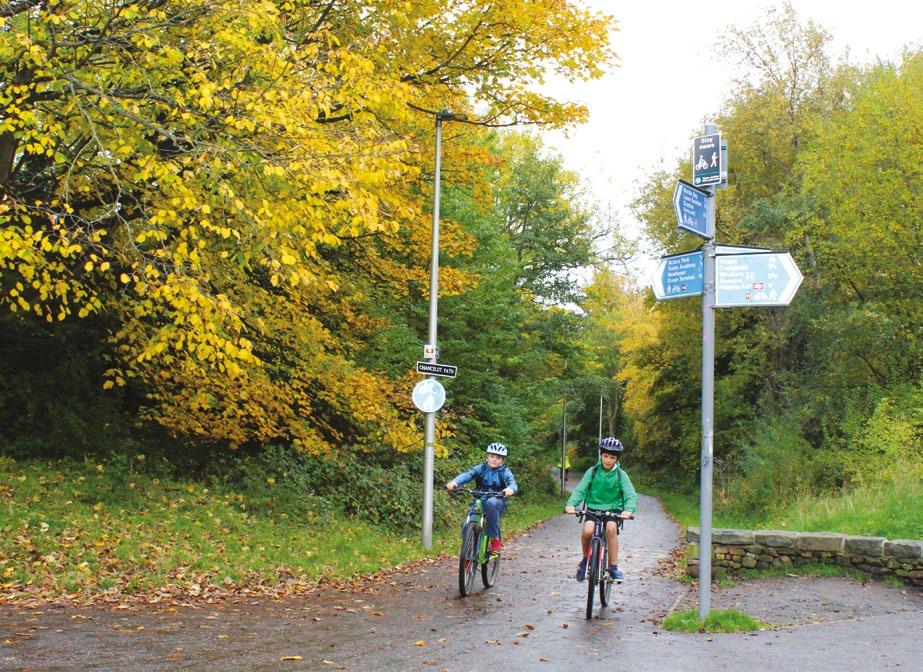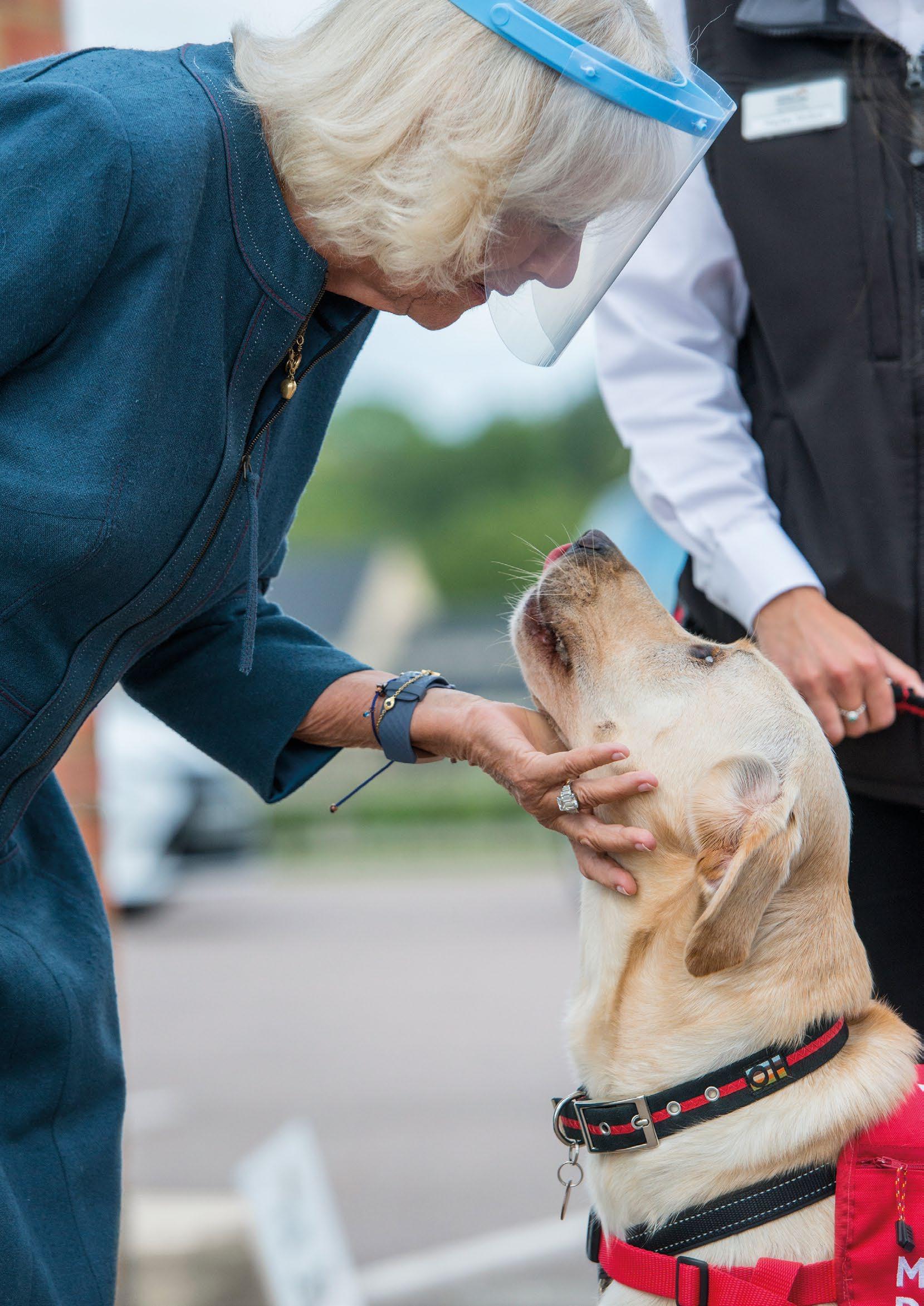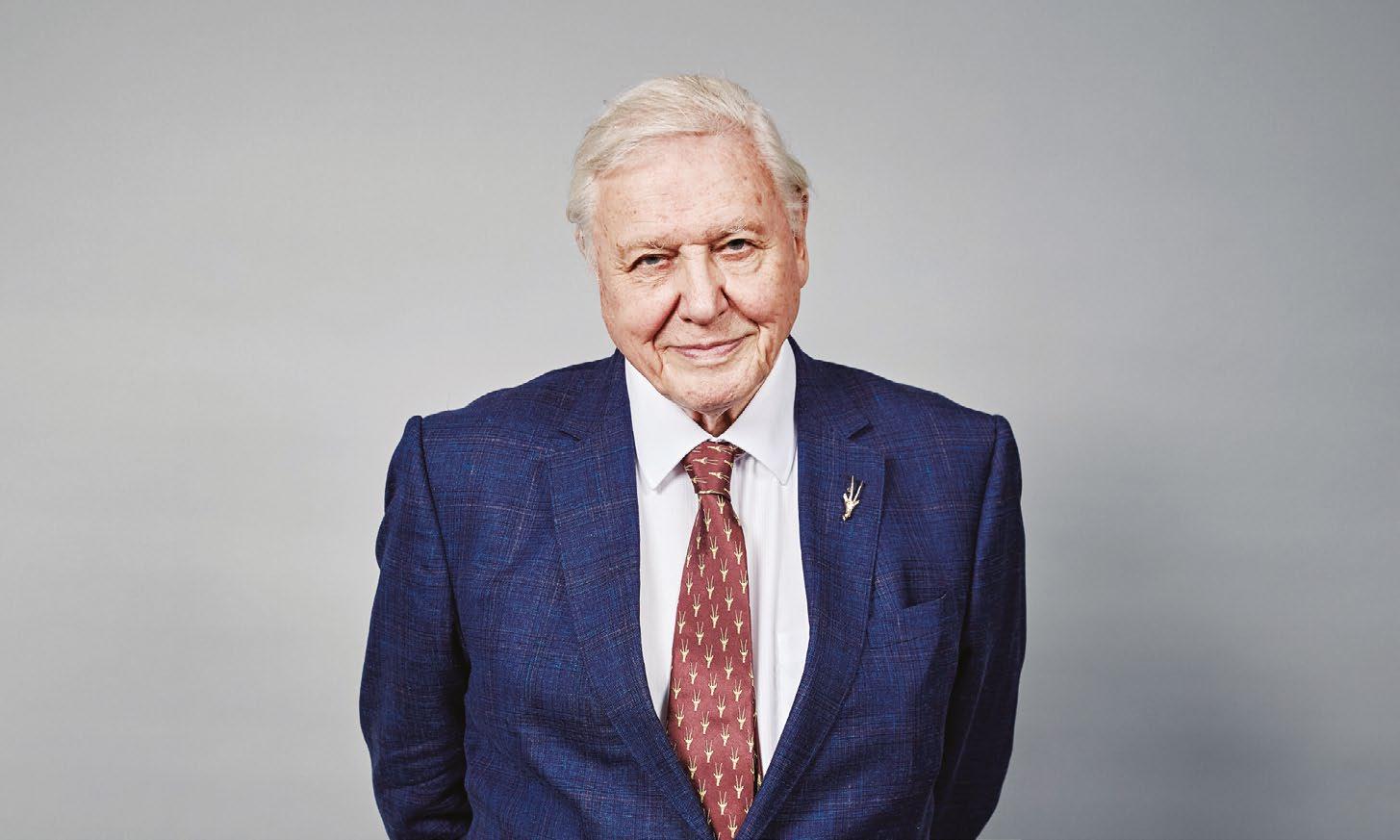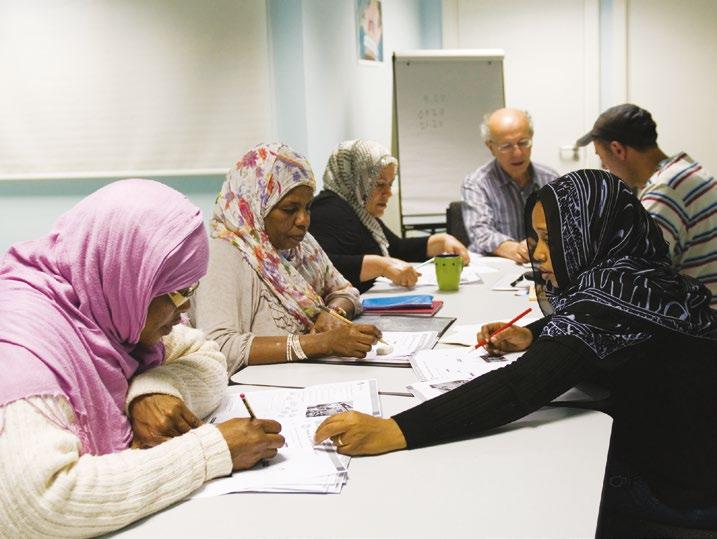
10 minute read
Special report
from Giving Magazine 2020
by cityam
future A BETTERBuilding
AN INNOVATIVE SOLUTION TO LONGTERM FOOD INSECURITY IN THE SAHEL.
Cycles of deep, long-term food insecurity plague the Sahel region of Sub-Saharan Africa, which includes the countries of Chad and Niger. Here, an estimated 4.8 million people live with chronic hunger as extreme drought destroys harvests year after year.
“Now, the devastating impact of Covid-19 and related containment measures, which has affected people’s ability to earn an income, threatens to tip whole communities over the edge,” explains Naziha El Moussaoui, British Red Cross food and security adviser.
To help families and communities overcome this cycle and build a better future for themselves, British Red Cross is transforming the way it delivers aid. The charity is pioneering the provision of innovative financial assistance, such as cash transfers, so that people can build and support sustainable, local income-generating activities.
Whereas an influx of food aid can sometimes cause unintended harm by providing goods already available locally, financial aid has the power to boost fragile local markets and restore people’s livelihoods. By supporting the jobs and income of local traders and businesses, it can empower a community to drive its own recovery.
What’s more, financial assistance is an agile tool that can be adapted to specific contexts and aimed at targeted groups. The Red Cross Mothers’ Clubs in Chad and Niger provide an excellent example of how this works, giving vulnerable women the chance to earn an income.
With seed funding from their local Red Cross, Mothers’ Clubs build collective Resilience and Health Funds, from which women can borrow money to start their own income-generating activity. Profits are reinvested into the funds, so building a source of self-sustaining funding for the mothers to draw upon.
Naziha concludes: “Investing in women and their communities puts the power in their hands to create sustainable change for their children, families and entire communities – with the dignity and freedom they deserve.”
redcross.org.uk
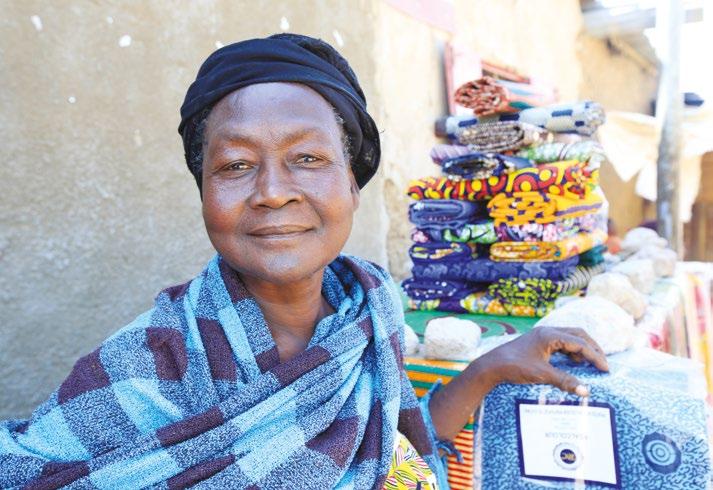
Charities are leading the charge in tackling some of the most pressing humanitarian crises around the globe in the face of the Covid-19 pandemic and accelerating climate change. Here is Giving’s pick of pioneering initiatives supported by players of the Postcode Lotteries, and the compelling personal stories behind them.
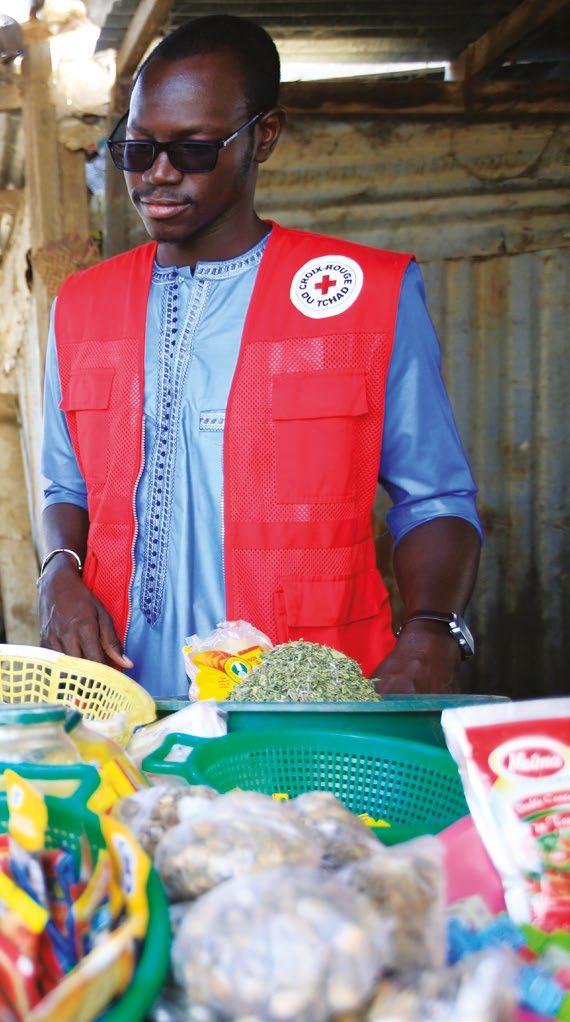
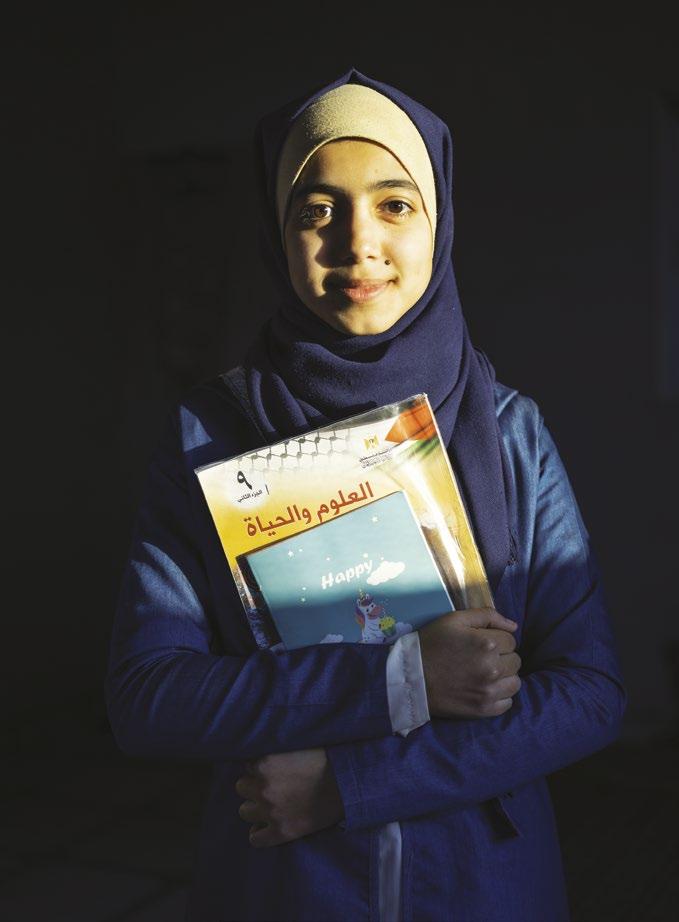
ACCESS TO LEARNING IS THE KEY TO A BETTER FUTURE FOR CHILDREN AROUND THE WORLD.
Active in over 100 countries, Save the Children not only helps the most marginalised kids and their families with life-saving supplies of food, water, medicine and hygiene essentials, but also advocates for children, giving them a voice. In 2019, it reached 7.7 million children around the world with education programmes.
During the Covid-19 crisis, the charity has adapted and expanded its work to keep kids engaged in learning during school closures. It has helped provide books and home learning kits and has assisted government authorities and parents in planning a safe return to school.
In conflict zones in particular, the pandemic has compounded existing threats to children’s safety and learning.
In the occupied Palestinian territory of Gaza, Save the Children helps girls like 14-year-old Hana* to access treatment and schooling. She describes herself as someone who has looked death in the eye and survived – in 2014, at eight years old, she was seriously wounded in an airstrike which took the lives of her mother and four brothers. She was treated for injuries and PTSD with the charity’s support. Now she is top of her class and regularly enters poetry competitions.
Hana points out that getting an education is the biggest challenge for girls in Gaza, as many are forced to stay at home with their families or simply can’t afford to go to school. “Education is like a weapon in a person’s hand,” she says. When she has finished school, she wants to be a doctor to help the people of Gaza.
“This year, the virus meant that school was closed for a time. I missed my friends and my English lessons. I tried to read my books at home after washing plates, but it wasn’t good because there were so many jobs to do and distractions. I’m glad to be back at school.”
savethechildren.org.uk
*name changed to protect identity
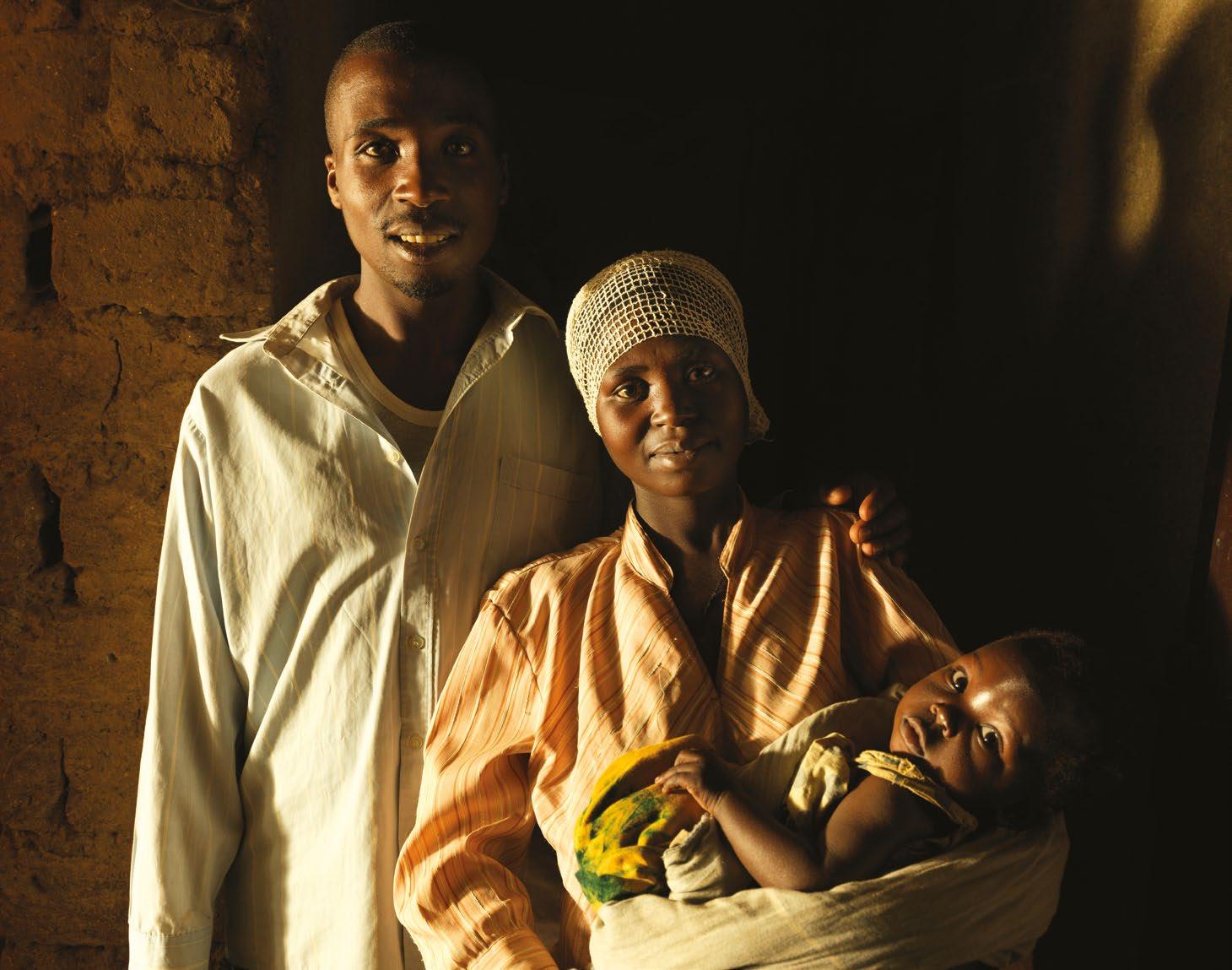
MEN JOIN THE FIGHT AGAINST GENDER-BASED VIOLENCE IN RWANDA.
Care International’s Indashyikirwa project tackles gender-based violence (GBV) in Rwanda through local activism.
It works with men and women – as couples and individuals – to challenge the harmful, restrictive constructions of masculinity and femininity that underpin GBV, and trains participants to go out into their community as activists themselves.
Donatilla and Jean Claude have been married for 12 years and have four young children. A community activist who knew about the conflict in their relationship came to visit them at home. Jean Claude was an alcoholic at that time, and the abuse was financial and physical. They have been attending the activism sessions for the last six months, and Jean Claude has changed his behaviour.
He explains: “At first I didn’t want to talk [to the activists] but they persisted, so eventually I let them in and listened. We talked about the issues we were facing. I believed that no woman should have access or a right to finances. I felt the money was mine to manage. I spent a lot on alcohol. They asked me to reflect on what was happening, and the impact.”
Donatilla adds: “I didn’t take this as being normal, but because he was an alcoholic at that time, I kept quiet to save my life.”
“The activists talked about the benefits of a happy relationship and living in harmony, also about effective communication as a couple,” Jean Claude continues. “Slowly we started to make changes.
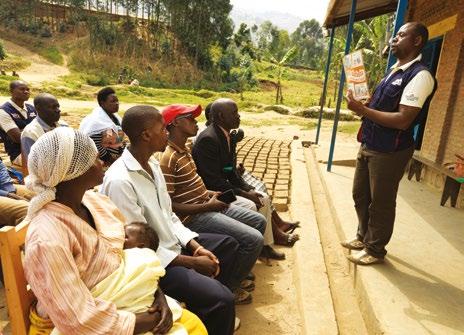
“Our children weren’t in school at the time, as I spent all of the money on alcohol. But I had a change of heart and agreed to put them in school. I no longer keep whatever I earn to myself and Donatilla also sells food to earn money.
“Now we share the little we have and decide together what to do with our finances. We’ve bought a small plot of land for farming and a bike, which helps me to work. I want to be a good example to our children.”
“Now I have peace of mind and no conflict, says Donatilla. “We decided to join Indashyikirwa’s different activities not just to learn, but to share our story with others. These discussions are important to help people in similar situations to change their way of thinking.”
careinternational.org.uk
HEALTHCARE BASICS AND BOOKS FOR RURAL FAMILIES IN NORTHERN GHANA.
AfriKids has been working in rural Ghana since 2002 to keep children healthy, safe and in education.
The charity’s Child Rights Clubs have helped more than 50,000 children gain a better understanding of their rights, women and girls’ rights, and disability rights in a fun, child-friendly setting. Club member Blessing speaks passionately about girls’ education: “Education is so important for us girls. It helps us to build our courage and self-esteem and makes us feel good wherever we are”.
AfriKids’ Young Entrepreneurs programme helps young people transition from institutional care to their own independent adult life. They are given training and education to help them earn a living for themselves.
This year, as Covid-19 hit marginalised communities that have limited healthcare and education services, the charity helped around 2,000 families with emergency food, soap and PPE. Its team of local experts have had to adapt and react to the situation, assessing their communities’ needs and responding in the most responsible and beneficial way possible, helping save lives when the need is greatest.
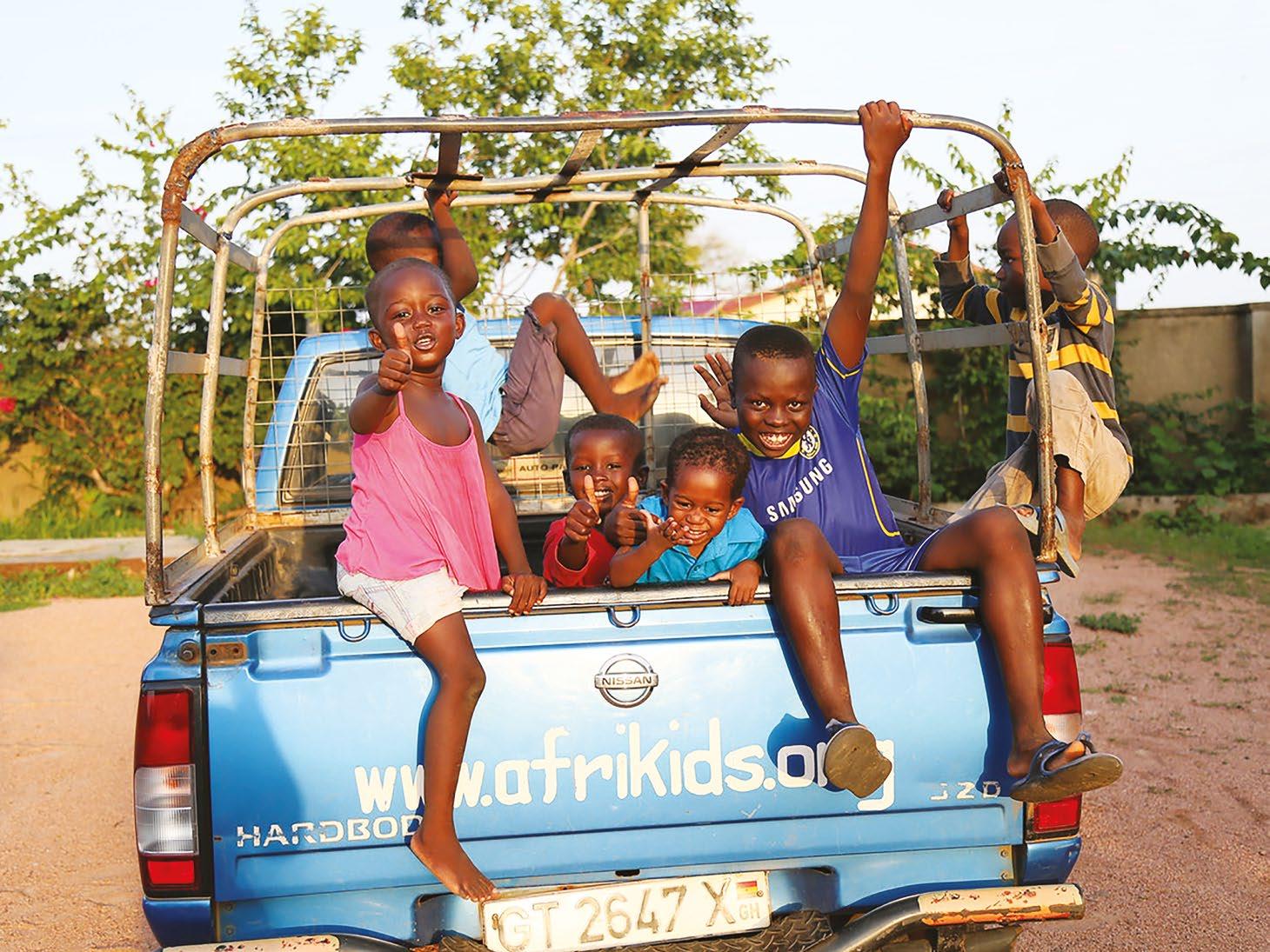
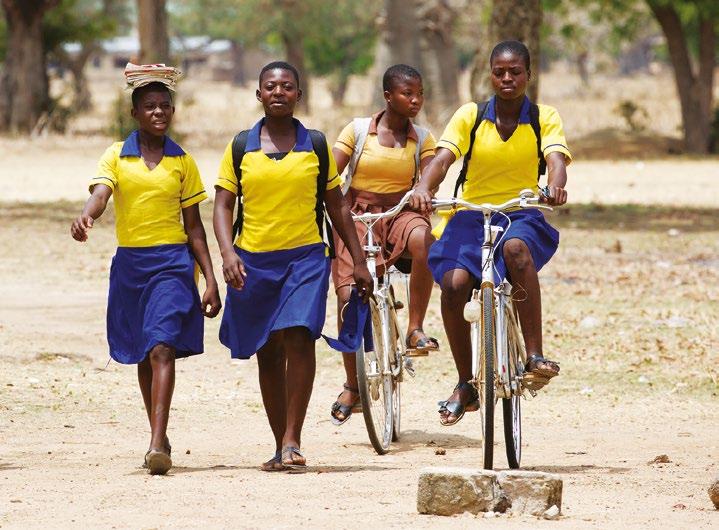
afrikids.org
PEER SUPPORT AND ECONOMIC EMPOWERMENT FOR WOMEN IN WAR-TORN REGIONS.
Women for Women International provides social and economic empowerment training to the most marginalised women in conflictaffected countries, including the Democratic Republic of Congo (DRC) and Iraq.
The training sees women come together in groups to gain vital information about health, nutrition and hygiene; develop an understanding of their legal and human rights; and build valuable skills so that they can earn an income. The groups form tight social circles of support, breaking the isolation created by conflict and insecurity, and promoting solidarity and trust between women who have often experienced multiple traumas. Amira*, an Iraqi participant, explains the positive impact on her life: “Before I joined the programme, my life was staying at home, looking after my husband and children. I had very limited social connections. But now my social network has expanded and I’ve learned a lot of things: how to manage household finances, save money for emergencies, and also how to solve problems in order to keep my family a happy one… I have come to understand that women aren’t alone, and we aren’t weak.” During the Covid-19 pandemic, women in conflict zones have faced tough additional challenges: poverty and hunger due to loss of income; social isolation as support networks are disrupted and a ‘shadow epidemic’ of gender-based violence as lockdown confined women and girls with their abusers and cut off access to help.
Though Covid-19 forced Women for Women International to suspend in-person training for several months, its teams worked throughout to ensure the most vulnerable women had some support. Now, though face-to-face group meetings have largely resumed, the charity is building on lessons learnt during the pandemic to enhance its support
to women. This includes use of technology and social media, a greater emphasis on involving men in preventing violence in the home, and empowering women to be trusted leaders and educators in their communities in times of crisis. When women are able to exercise power, they use it to protect not just themselves, but all those around them – they’re an essential part of an effective, sustainable recovery from the pandemic, and from conflict.
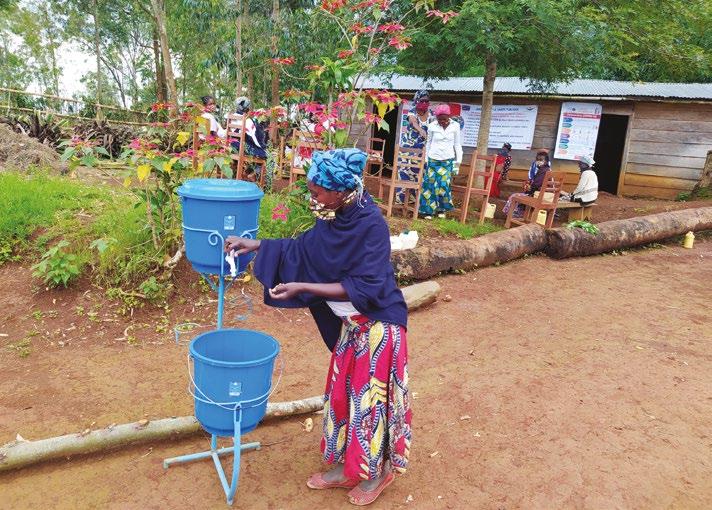
womenforwomen.org.uk
*name changed to protect identity
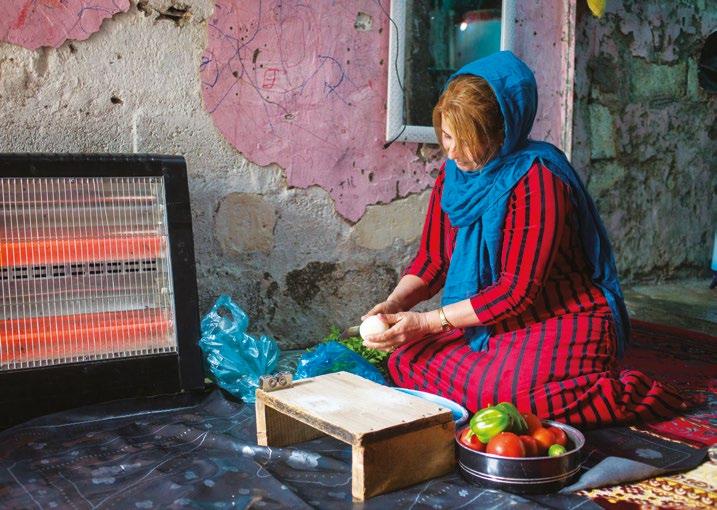
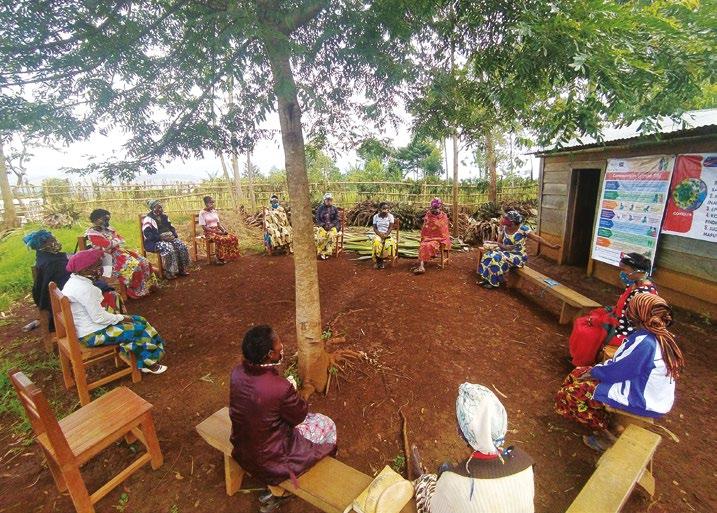
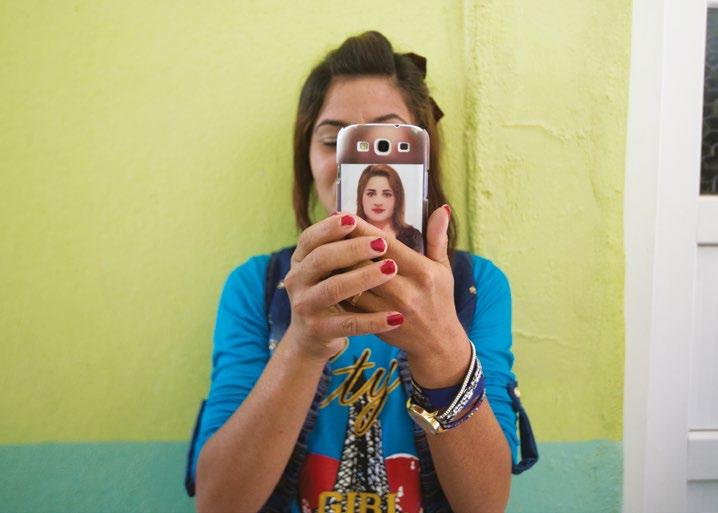
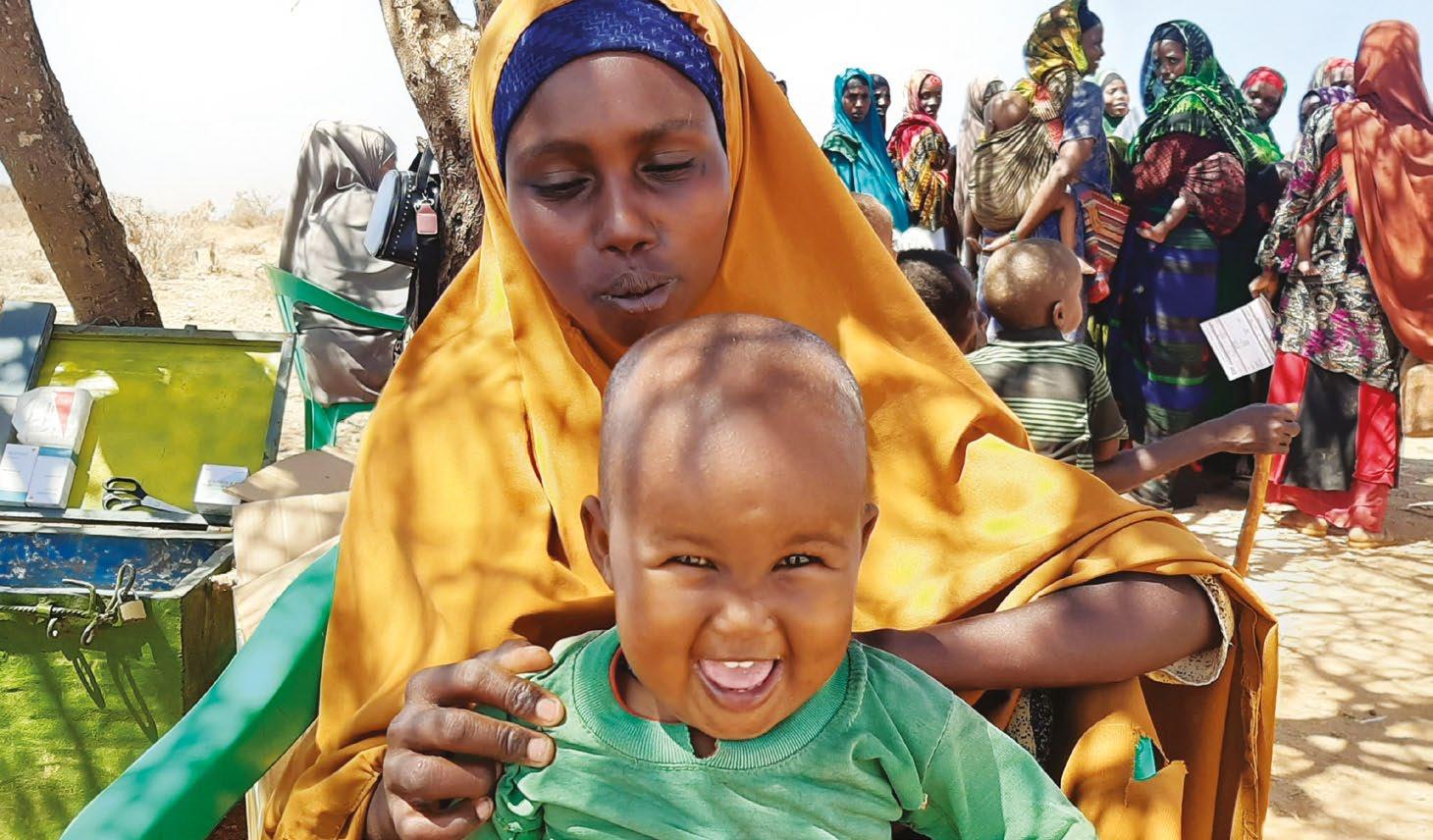
A SOMALI FAMILY’S POIGNANT STORY OF TREATMENT FOR MALNUTRITION.
For almost three decades, Action Against Hunger has been working in the East African country of Somalia, which ranks second last in the Global Health Security Index.
For its people, Covid-19 came on top of the chronic crises of poor harvests, malnutrition, cholera and malaria, amongst others. More than a third of the population needs humanitarian assistance and one in four children is acutely malnourished.
Ahada and her family are subsistence farmers. In recent years, their harvests have been poor due to drought and repeated locust infestations. Recently, Ahada’s 13-monthold daughter Suldana became very sick. “I lost hope when I saw Suldana’s condition deteriorating,” she remembers. “I thought she would never get better.”
Ahada took her daughter to one of Action Against Hunger’s Health and Nutrition Treatment Centres, where she was diagnosed with severe acute malnutrition. She was admitted into the outpatient treatment programme and given weekly rations of ready-to-use therapeutic food (RUTF). After eight weeks, Suldana had fully recovered and was discharged. Her mother participated in health and nutrition sessions and received regular support from health workers. “I never thought she would be able to recover from such a bad state,” says Ahada. “They treated her fever at the beginning and told me it was malnutrition. She was given RUTF and syrup to keep taking at home and that really saved her! Now, health workers visit us at home every week, giving sessions on hygiene and importance of exclusive breastfeeding. I have learned so much from that. “I’m very grateful to the team, particularly the nurse who has handled Suldana’s case with patience and dedication. Apart from treatment for my child, I’ve also learned about healthy hygiene and how to treat water.” ■
actionagainsthunger.org.uk
